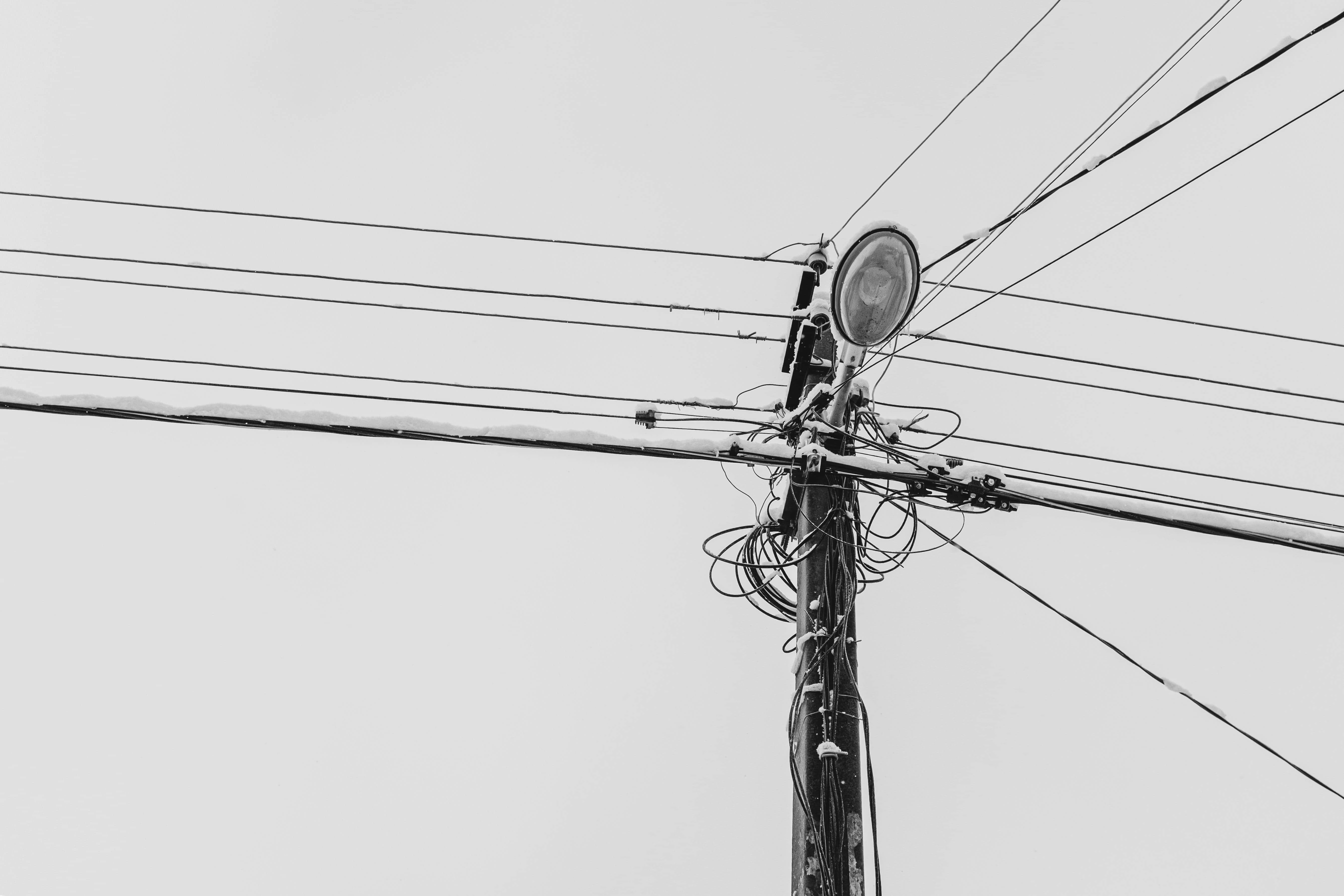
Who Invented Electricity? History of Energy and Power
Discover the pioneers of modern electricity and learn how electrical energy was first integrated into our daily lives.
In this article:
- Thales of Miletus (~600 BC)
- William Gilbert (~1590)
- Benjamin Franklin (~1748)
- Alessandro Volta (~1786)
- Michael Faraday (~1829)
- James Clerk Maxwell (~1855)
- Thomas Edison (~1889)
- Nikola Tesla (~1900)
- The First Practical Uses of Electricity
- When Was Electricity First Used in Homes?
- What Does the Future of Electricity Look Like?
- Recent Posts
Have you ever paused to think about who invented electricity? It's a familiar, yet remarkable force that's been part of our world since the dawn of time. Harnessing electricity is not a story of a single inventor, but of many brilliant minds who illuminated the world as we know it today.
In this journey, each scientist and inventor added a piece to the complex puzzle of electricity. Their contributions, ranging from theoretical insights to practical inventions, have collectively shaped our modern world.
Today, we recognize the importance of this history in shaping the diverse, sustainable, and efficient energy solutions that are available to us now. Let's delve into the stories of these remarkable individuals to appreciate how their insights and inventions have led to the advanced and versatile use of electricity in our daily lives.
Thales of Miletus (~600 BC)
First to observe static electricity
Thales of Miletus, a Greek philosopher, is known for being the first to observe static electricity around 600 BC. He discovered that when amber was rubbed with fur, it could attract light objects like feathers, a phenomenon known as static electricity today.
William Gilbert (~1590)
Distinguished difference between magnetism and static electricity
William Gilbert, an English physician and scientist, made significant contributions to the understanding of magnetism and electricity. In the late 16th century, he coined the term "electricus" and his studies distinguished the difference between magnetism and static electricity.
Benjamin Franklin (~1748)
How the kite experiment led to the invention of the lightning rod
Benjamin Franklin, one of the Founding Fathers of the United States, is famous for his experiments with electricity in the 18th century. His most notable contribution was the kite experiment, which demonstrated the electrical nature of lightning and led to the invention of the lightning rod.
Alessandro Volta (~1786)
Created the first battery that produced an electric current
Alessandro Volta, an Italian physicist, is credited with inventing the voltaic pile in the early 19th century. This was the first true battery that produced a steady electric current, a groundbreaking development that paved the way for the modern study and application of electricity.
Michael Faraday (~1829)
Invented the electric motor and discovered electromagnetic induction
Michael Faraday, a British scientist, made crucial discoveries in electromagnetism and electrochemistry. His work in the 19th century, including the invention of the electric motor and the discovery of electromagnetic induction, has had a lasting impact on how electricity is used in technology.
James Clerk Maxwell (~1855)
Created the classical theory of electromagnetic radiation
James Clerk Maxwell, a Scottish physicist, is renowned for his formulation of the classical theory of electromagnetic radiation. In the mid-19th century, he demonstrated that electricity, magnetism, and light are all manifestations of the same phenomenon: electromagnetic fields. This fundamentally changed the understanding of electricity.
Thomas Edison (~1889)
Pioneered the incandescent light bulb and electrical power distribution
Thomas Edison, a luminary in electrical innovation, was instrumental in developing the incandescent light bulb and power distribution systems. His work transformed how we use and distribute electricity, making it accessible and practical for everyday use.
Nikola Tesla (~1900)
Master of alternating current (AC) technology
Tesla's most significant contribution was in the field of alternating current (AC) technology. This system of electrical transmission, which allows for the efficient transportation of electricity over long distances, was a game-changer in the commercialization and widespread adoption of electrical power.
The First Practical Uses of Electricity
The practical use of electricity began in the late 19th century, marking a turning point in industrial development. Samuel Morse's invention of the electric telegraph in the 1830s and the development of a network of telegraph lines revolutionized long-distance communication.
The next major leap was in lighting. With the invention of incandescent light bulbs by Thomas Edison and others, electric lighting began to replace gas and oil lamps in public spaces and industrial settings. This improved safety, extended productive hours, and spurred the growth of new industries.
The electric motor, pioneered by Michael Faraday, was another important development. By the late 19th century, electric motors were powering factories, which reduced reliance on mechanical systems run by steam or water power.
The spread of electric power was also accelerated by advancements in power generation and distribution, particularly through the work of Nikola Tesla in developing the alternating current (AC) system. This enabled electricity to be transmitted over long distances, making it more accessible and leading to more widespread industrial and commercial use.
When Was Electricity First Used in Homes?
The introduction of electricity into homes marked a pivotal moment in history, beginning in earnest at the turn of the 20th century. Initially, its use in homes was primarily for lighting, but it rapidly expanded to include a host of appliances that forever changed domestic life. Let’s take a closer look at how electrical appliances have reshaped our homes from the 1920s to today:
- 1920s: The introduction of electric lighting in homes reduced dependence on candles and gas lamps, making homes brighter and safer.
- 1930s: Refrigerators became common, replacing ice boxes. This drastically improved food preservation and reduced the need for frequent shopping.
- 1940s: The adoption of washing machines marked a significant change in household chores, reducing the time and effort required for washing clothes.
- 1950s: TV sets became a central feature in many homes. This provided entertainment and altered the way we consume media in our daily lives.
- 1960s: Dishwashers grew in popularity, simplifying post-meal cleanup and changing the dynamics of household tasks.
- 1970s: The microwave was a revolutionary addition to the kitchen, reducing cooking time and simplifying meal preparation.
- 1980s: Personal computers began to make their way into homes, evolving from workplace technology to tools for entertainment, education, and personal use.
- 1990s: The spread of the internet transformed home computers into gateways for global information, communication, and entertainment, connecting households like never before.
- 2000s: The introduction of flat-screen TVs and smart home devices marked the beginning of a new era in home entertainment and automation.
- 2010s: The boom of smartphones and tablets enabled unprecedented control, monitoring, and connectivity of home appliances and systems.
- 2020s: Advanced technology including voice-activated assistants and robotic vacuums represented a leap towards more interactive and autonomous home environments.
What Does the Future of Electricity Look Like?
As we look forward, the future of electricity is as bright and transformative as its past. We've seen electricity transform from a novel resource to a staple in every home. Now, we're stepping into an era of sustainable energy.
Renewable sources like solar, wind, and hydroelectric power are front and center. Solar panels, for instance, have become more efficient and affordable. This signals a shift towards a future where clean and renewable energy is the norm.
Smart grid technology is another area with immense potential. These systems are making our energy distribution smarter and more efficient. By utilizing advanced smart grid technology, we can create a more resilient and adaptable energy infrastructure.
Electric vehicles (EVs) are also reshaping the energy landscape. By moving away from fossil fuels, EVs are carving out a new path in how we think about transportation.
So, what does all this mean for us? It's a future filled with innovation, sustainability, and efficiency. As electricity continues to evolve, its role in our lives becomes even more integral, promising an exciting and more sustainable future.
Written by Kendra Aquino
Kendra is EnergyBot's Content Manager.
Connect
Recent Posts
Road to Recovery: Fort Worth homeowners receive $27 million after 2021 Winter Storm Uri
Fort Worth residents are still recovering from the havoc caused by Winter Storm Uri in 2021, but now relief is on the horizon in the form of $27 million in grants.
September 2025

3 minutes

PPL Electricity Rates Climb Ahead of the Holiday Season
December 2025

4 minutes

Unlimited Electricity Plans in Texas: Here’s What it Actually Costs
Searching for unlimited electricity plans in Texas? On the surface, they sound perfect: one flat bill, no matter how much power you use.
August 2025

4 Minutes

.jpeg)

